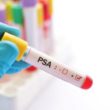Cancer Screening Reduction Related to the COVID-19 Pandemic
Sharp declines in cancer screening have been associated with the COVID-19 pandemic; however, detailed analysis of different geographic regions and socioeconomic status had not been investigated.

To quantify the screening rates for breast, colorectal, and prostate cancers associated with the COVID-19 pandemic in different geographic regions and for individuals in different socioeconomic status index brackets and estimate the overall cancer screening deficit in 2020 across the U.S. population, this retrospective study used claims data and enrollment information of approximately 60 million people in Medicare Advantage and commercial health plans from geographically diverse regions of the U.S. Participants had not been previously diagnosed with any of the cancers studied.
Screening for all three cancers declined sharply in March through May of 2020, compared with 2019, with the sharpest decline occurring in April (breast 90.8%, colorectal, 79.3%, prostate-63.4%). This was followed by a nearly complete recovery of monthly screening rates by July for breast and prostate cancers. The deficit across the US population in screening associated with the pandemic was estimated to be 3.9 million (breast), 3.8 million (colorectal), and 1.6 million (prostate).
The sharpest declines occurred in the Northeast, and the West had a slower recovery than the Midwest and South. The largest declines were observed in those in the top one-fourth of the socioeconomic index.
Heightened public health efforts are needed to address the large cancer screening deficit associated with the COVID-19 pandemic, including the use of screening tools that do not require an intervention. In this regard, telehealth use was associated with a higher rate of cancer screening.
JAMA Oncology
2021 Jun 1;7(6):878-884.
doi: 10.1001/jamaoncol.2021.0884.
©Sanford Radom, M.D.
















